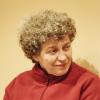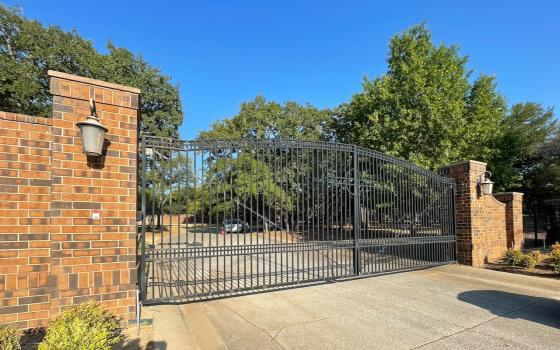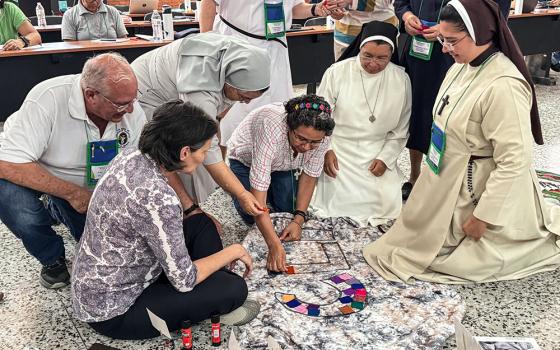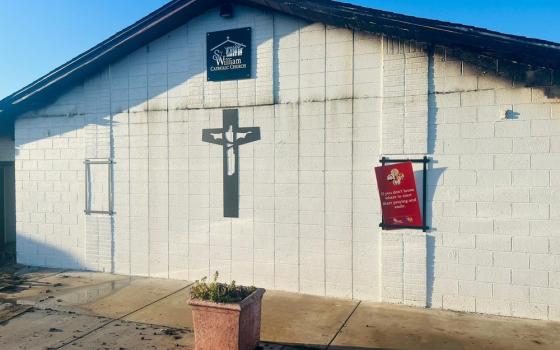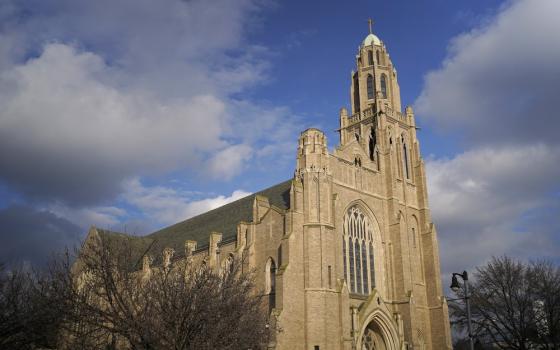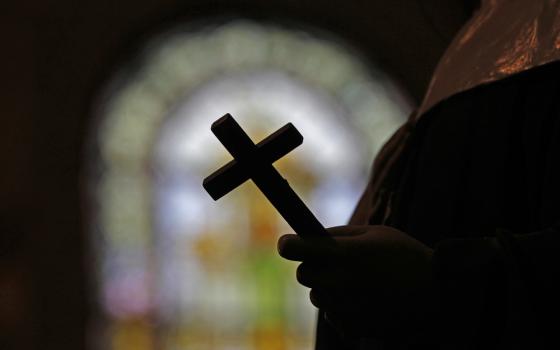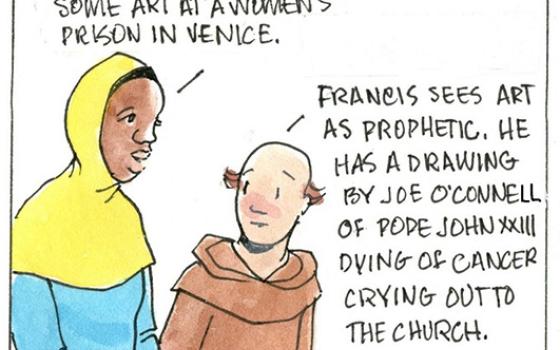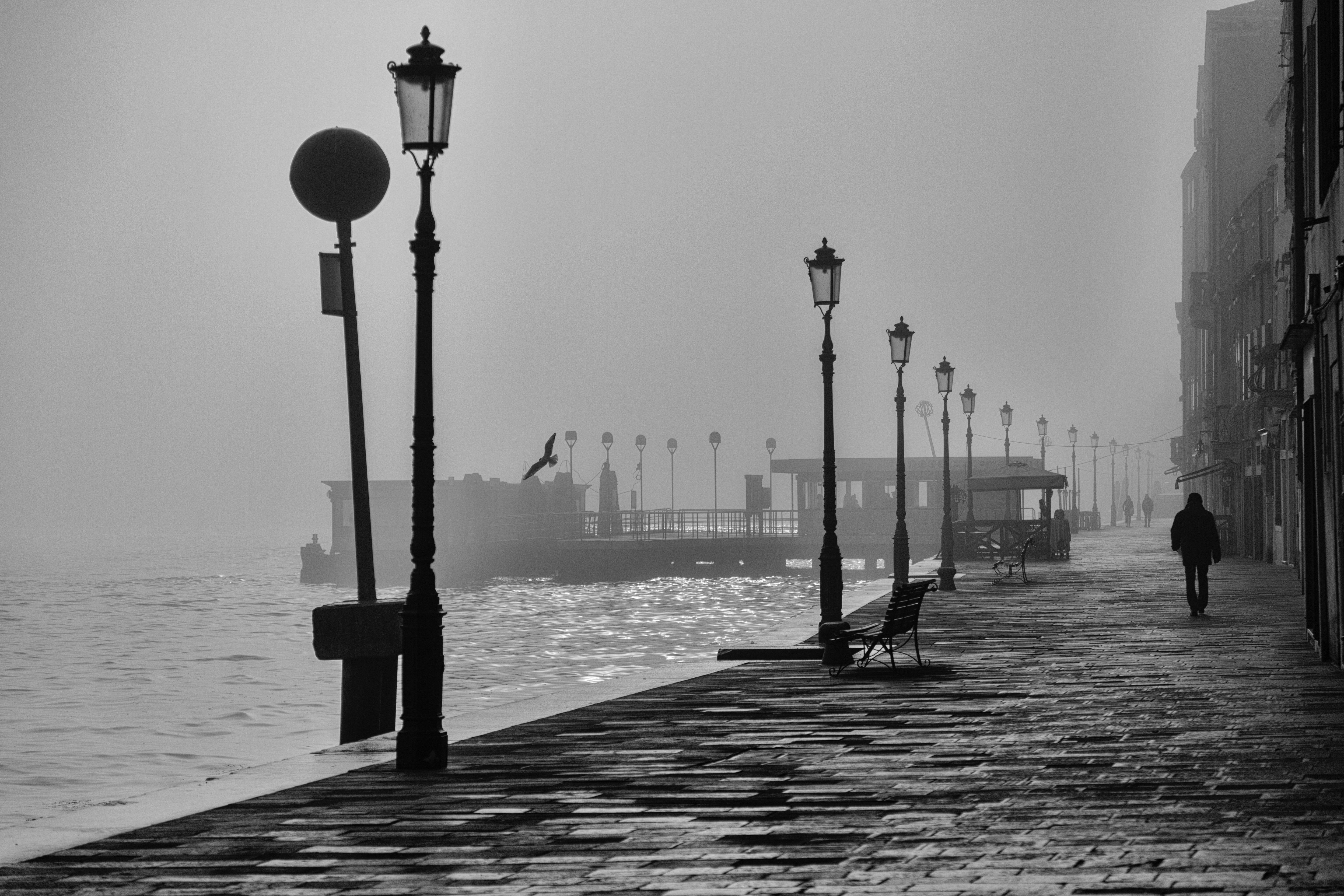
(Unsplash/Philippe Mignot)
"It is one thing to give birth, and another very different thing is to be a mother," one of my brothers wrote when my mother died in December 2017. Last September, my father died, and today I can add to those words: it is one thing to procreate, and another very different thing is to be parents, being a father, and being a mother. My parents had flaws and made mistakes, but as I once commented to another brother, they were parents.
In the days before his death, my father dreamed every night that he was with the family — my mother, him, all their small children — all of us together. It was what he carried in his heart: his wife, sons and daughters, and all his descendants. He was very proud that he already had a great-great-granddaughter! He did carry us in his heart.
As a missionary, I have been away from Mexico for many years, and his letters were always a "report" on each child. Then my mom used to write a few lines at the bottom, backing up what he said. For many years he went swimming, doing 10 laps in the 50-meter pool as a time of prayer — at each turn, he prayed a Hail Mary, one for each of his family, his wife and his nine children, and their families.
In daily life, my parents planted many values in us, particularly three: solidarity, a sense of justice and honesty.
The most important was solidarity among us. On Jan. 6, the Three Holy Kings always brought a small gift for each of us and something big that was for everyone, a toy that we had to agree on, organize and share.
They taught us to cultivate affection among siblings. Once, a friend said to me, "You are a very democratic family." Though we nine children are very different, we love each other very much. It is the greatest gift, and I have experienced our mutual support in these years since 2019, caring for my dad as he became more dependent, each one according to our abilities. My mom's biggest concern when she was ill was what would happen to my dad if she left. We used to tell her: "Mom, you can go in peace; we will take care of our dad." It was so. They instilled this in us, along with the sense of justice, which we heard them talk about and which we saw them practice in many circumstances.
As an art designer, my father was an example of honesty for us. I was a teenager when someone proposed a job to him, making designs for an entity whose ideology he did not share; they would pay a lot of money, but he did not accept it. He could not do something contrary to his convictions, no matter how much money it would mean. These are facts that remain engraved in my mind and heart.
Of course, he was not perfect. Each of his children can mention his defects, but a life lesson he gave me was his ability to evolve. He changed in many ways over the years; he modified his way of thinking and acting as circumstances changed, as he observed, read and listened to others. This flexibility made him able to learn to use the computer when he was over 70 years old — at first because he discovered that he could talk through Skype to his children who were far away. He kept learning until the day of his death at 92, going down to his study to read his emails, navigate the internet and learn new things — always very active on WhatsApp!
That is also a life lesson: that flexibility to keep on learning, knowing that you haven't achieved everything, and being able to change.
He was not flawless, but he loved us, his wife, sons and daughters. In his intense work as a graphic designer, he constantly asked God to give him good and new ideas for his designs. St. Paul says that "Our present sufferings are not worth comparing with the glory that will be revealed in us" (Rom 8:18). We saw Dad stay awake late at night and get up early for many years to support us and give us an education.
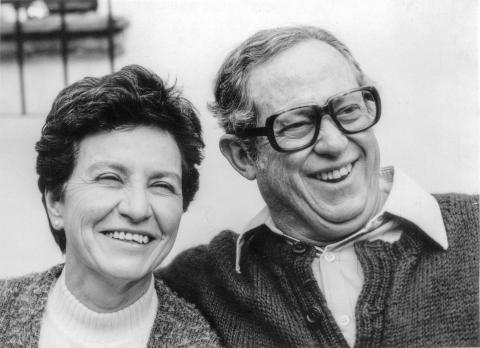
The author’s parents, courtesy of Pablo Herrerías Guerra.
Mom was the one to collect the money when he did freelance work. He was not good at it; when some reluctant customers did not want to pay, my mom would put all the kids in the van and introduce us at the debtor's office until he paid what he owed. Their mutual support enabled them to get ahead. When they were newlyweds, once they had nothing to eat and my mother was pregnant with me. Searching, Dad found a coin in a pair of pants, so they took the bus and went for lunch with my maternal grandmother. When they were in need, they worked together to build what it took to get us all ahead. That teamwork between them was something they also planted in us.
Because of the absence of my mother — his inseparable companion for 62 years — and physical suffering, the last years of my father were lonely and hard. However, one day he told me: "Nobody notices, but I pray all the time." He prayed for everyone, our deceased relatives and each one of us. That day I was at peace. He was ready to go.
He went away at an expected/unexpected moment. The death of a loved one always comes as a surprise. His departure, along with my mother's, undoubtedly left a great void. The experience, which I am sure many readers already know, is unique. It is like looking back and not seeing anyone. The point of cohesion and reference is lost. Throughout life, sometimes we follow in the footsteps and values of our parents; other times, we act "against" them, and we distance ourselves from what they tried to instill in us. But siding with our parents or going against them, they are like the lighthouse that marks the harbor.
Once, in my prayer, I spoke to Jesus about that absence, that feeling of being orphaned that I never thought I could experience at my age. I realized this emptiness is there, but could not stop looking back; now, they are not behind us but ahead of us. They wait for us, not in the harbor we left, but in the one toward which we are heading; we need to move forward — they await us at the goal.
Christians await the resurrection. We know that no gesture of love remains fruitless. No suffering goes unrewarded. We believe that every gesture of love has significance for eternal life; with each renunciation for love, and every single act of self-giving, we are building something for eternity (cfr. EG).
I hope that each one of us can direct our boats toward that port — there we will meet again — where "there will be no more death or mourning or crying or pain" (Rev 21:4), for the old order of things will have passed away, and God will have made everything new.
This column was originally published in Spanish.
